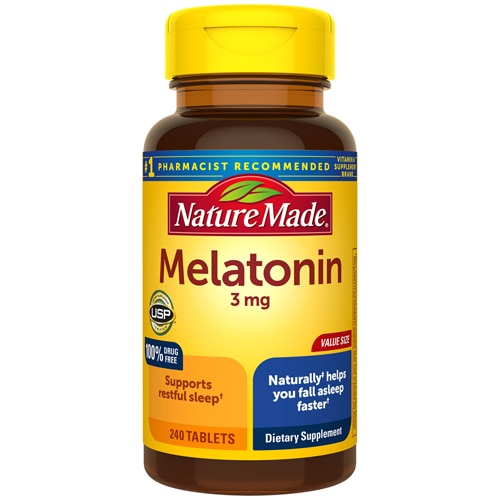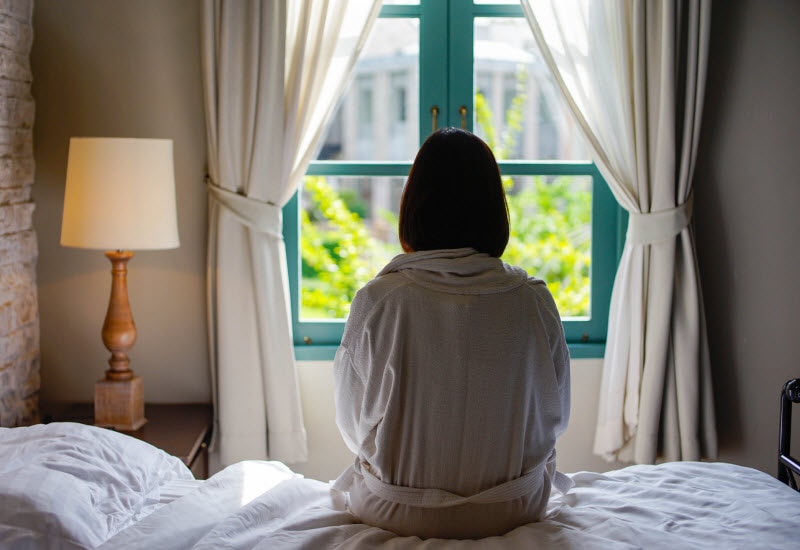If coronavirus concerns have you up at night—thinking of all the places you’ve touched, all the times you didn’t wash your hands that you should have or what things you need to cancel that you still haven’t canceled—one of the best pieces of advice is to sleep it off.
Getting quality sleep is almost as important for public health as social distancing, because sleep is key to helping our bodies stay healthy. Sleep protects us from infection, boosts our immune system, and can strengthen our body’s ability to respond to threat.
But for those wide-eyed at night, we feel ya: It’s not easy to sleep when the world is undergoing a seismic shift. Here are a few slumber-friendly measures for sleeping while sheltering in place.
How to Sleep When You Have Anxiety
1. Create an atmosphere conducive to sleep
Make sure your bedroom is dark, calm and cool. Cooler bedrooms help you sleep better—studies show a drop in your core temperature triggers your bodies “let’s hit the sack” systems, boosting your body’s production of the sleep hormone melatonin. A tidy, uncluttered environment can also help you sleep better, whereas a messy room can make you feel more overwhelmed and anxious.
2. Unplug
As a best practice, it’s a best to unwind from all electronics roughly 90 minutes before you go to bed, but even just 30 minutes can do the trick. According to the National Sleep Foundation, “TVs, tablets, smartphones, laptops or other electronic devices before bed delays your body’s internal clock (a.k.a., your circadian rhythm), suppresses the release of the sleep-inducing hormone melatonin, and makes it more difficult to fall asleep.”
That’s because most electronic screens emit a short-wavelength, artificial blue light. The more exposure you have to electronics in the evening, the harder it is to fall or stay asleep.
3. Manage distractions
If noise or light distracts you, purchase a sleep mask or ear plugs to make sleep more impervious to external conditions. Since your circadian rhythm depends on light regulation, wearing a sleep mask cuts out the disturbance of intrusive light.
If noise is the culprit, a comfortable pair of ear plugs that you can wear all night can minimize noisy interference, such as snoring or sirens.
4. Exercise
Not only does exercise make you more tired, it also helps you process the influx of nervous energy many of us are feeling right now amidst these uncertain times. If you do venture outside for a walk, pay attention to social distancing protocols. You can also devise your own home yoga practice or workout routine or make use of live streamed classes or exercise videos.
5. Limit napping
Although the temptation to stress nap may be great, it’s important to limit naps so that they don’t wreak havoc on your sleep schedule. Try to just have one 10-20-minute nap once a day—the sweet spot of naps. Longer naps can induce a sleep inertia and fogginess.
6. Work with your daytime anxiety so it doesn’t ramp up at night
If you are feeling anxious throughout the day, address it in real time, rather than bottling it all up. Anxiety that’s suppressed tends to leak out at night. Work with your fears directly, through a mindfulness practice or even online therapy, so when night falls you don’t have a logjam of fears vying for your attention.
7. Don’t eat your feelings, especially right before bed
Eating a lot right before bedtime is not only bad for your digestion, it can mess with your sleep. In an ideal world, you would finish eating by around 8:00 to give your body time to digest your dinner before going to sleep.
8. Explore the amazing world of sleep paraphernalia
Sleep teas, balms, sprays, essential oils, supplements such as melatonin, and even sleep powders can help you taper off your alertness into a state of cozy relaxation.
9. Wash your sheets
In these times, it doesn’t hurt to be extra vigilant about cleanliness and wash your sheets twice a week to control bacterial spread. Take care of your space as well, sweeping it daily and wiping down high-touch surfaces such as door handles.
10. Pamper yourself
Indulge yourself by making your bed feel like a deluxe safe haven. High thread count, organic sheets from Coyuchi; breathable, organic blankets from Boll & Branch; and a temperature- regulating, plush wool mattress topper from Avocado Green can all make sleep a more sensory and serene experience.
Bottom line:
Getting adequate, restful sleep can keep you healthy. Think of it as your small contribution to public health.




